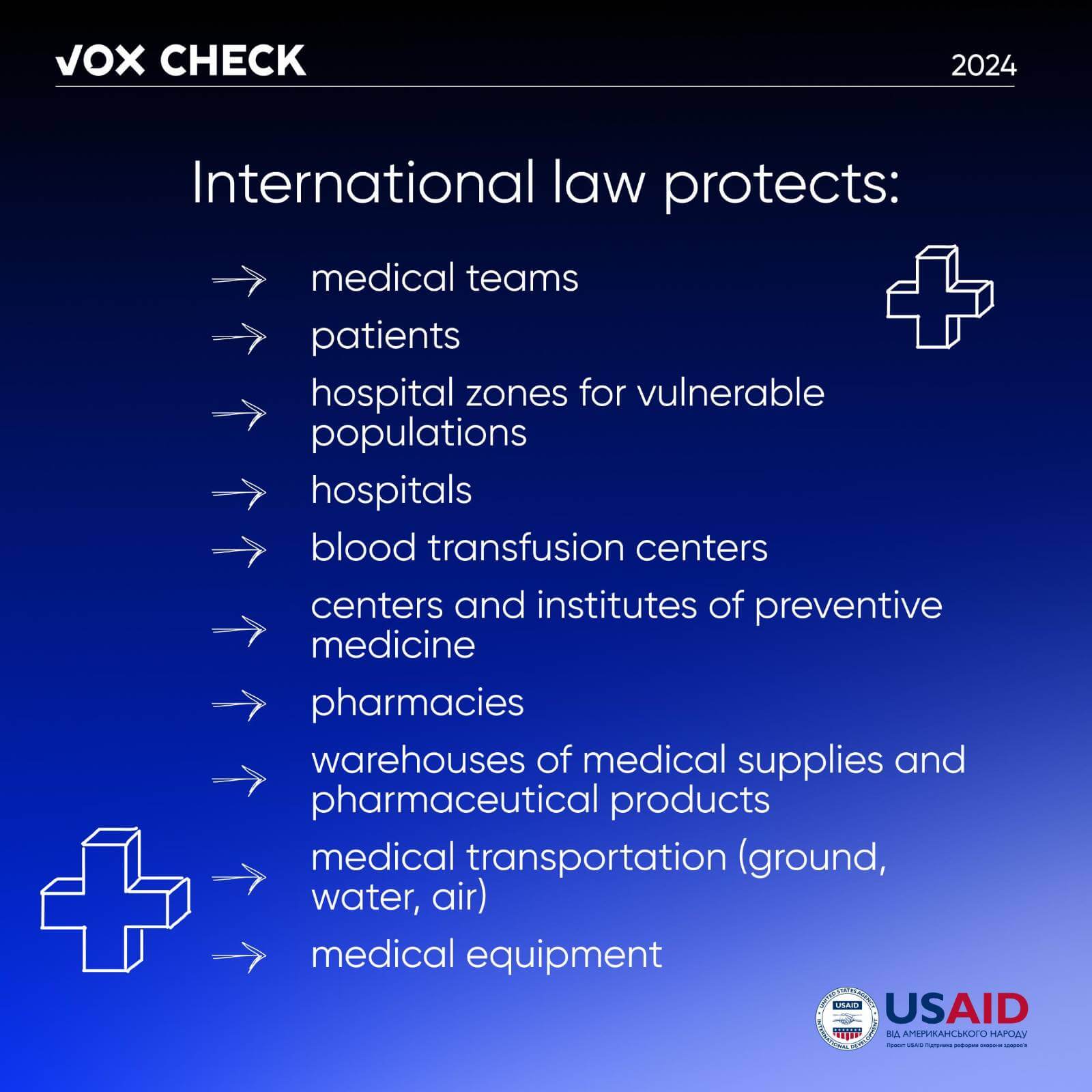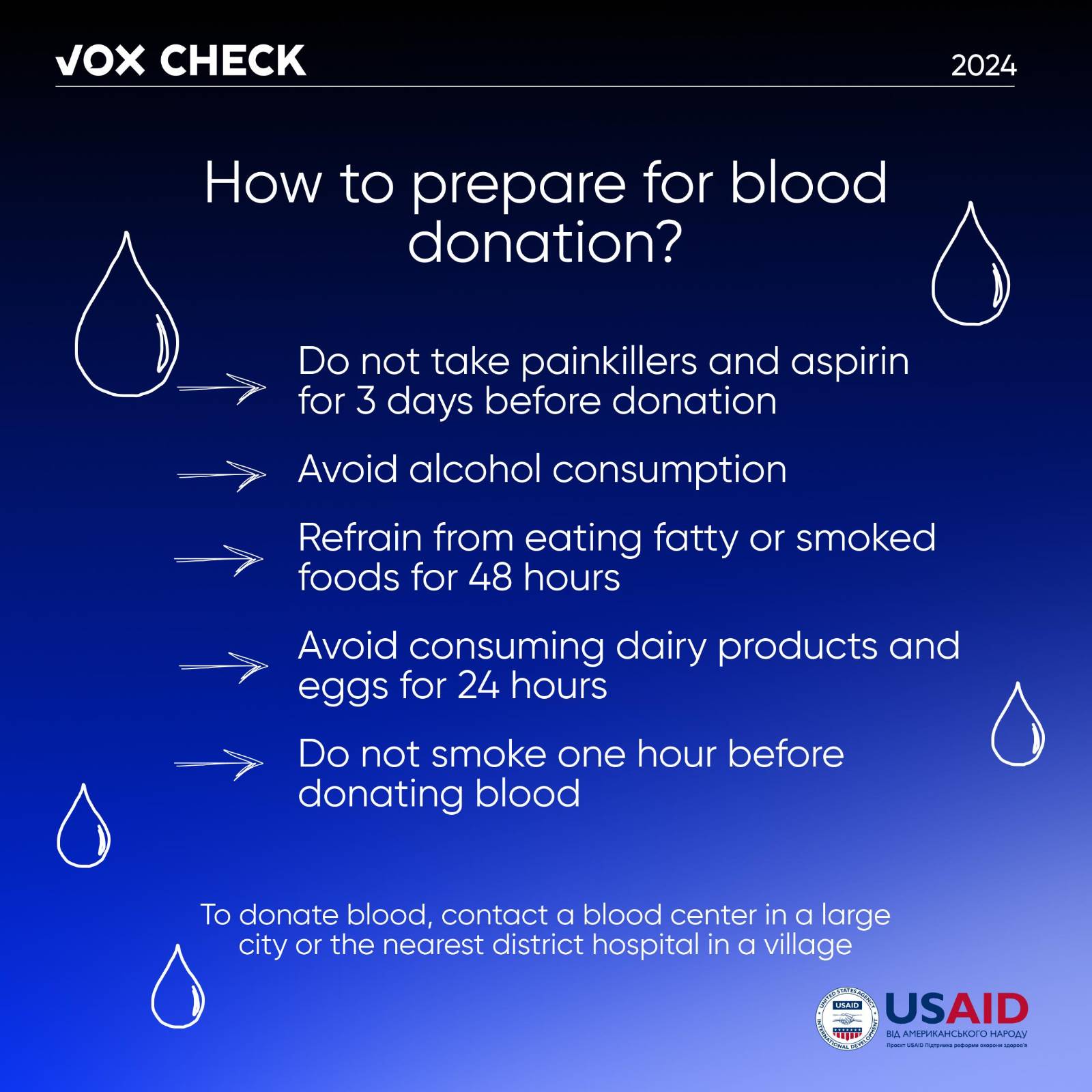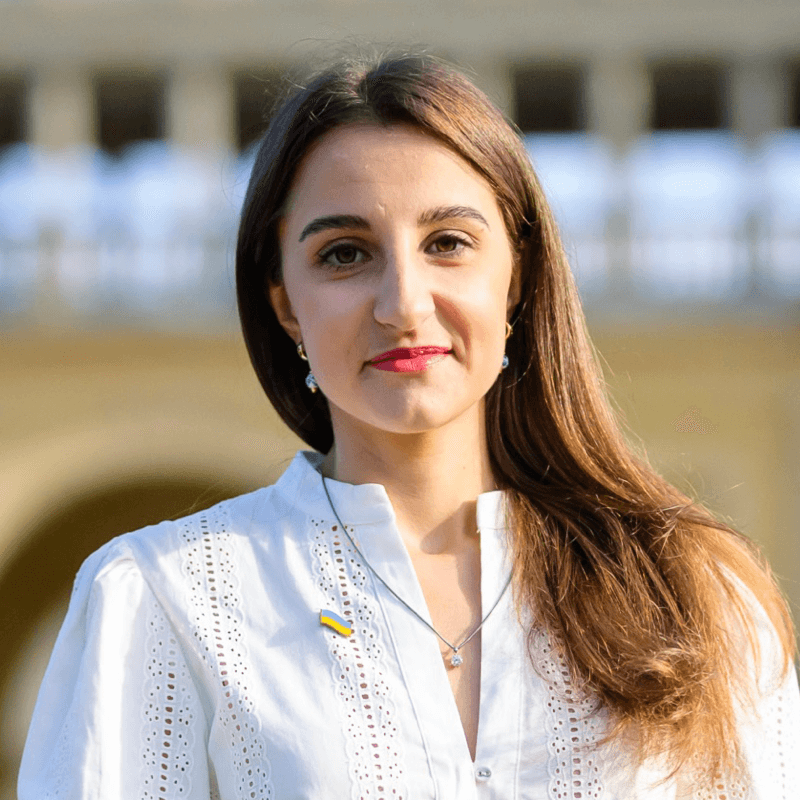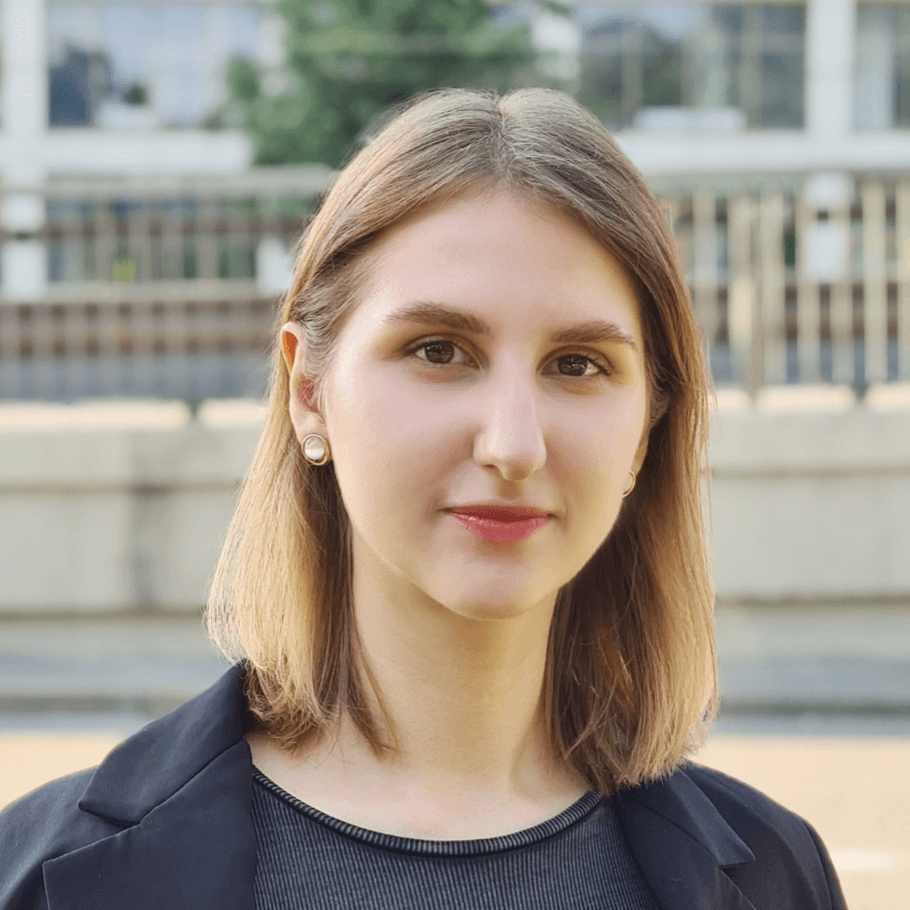This time, besides Russian officials, fake claims were also promoted by leaders of Belarusian state agencies. For instance, the head of the KGB of Belarus, Ivan Tertel, threatened to strike at the hospitals on 30 and 32 Bohatyrska Street in Kyiv, where allegedly Belarusian volunteers fighting as part of the Armed Forces of Ukraine are hiding. In another case, the fake was spread by Ukrainian-language resources. A Telegram channel claimed that representatives of the LGBTQ+ community in Ternopil are allegedly prohibited from donating blood, and the corresponding order was supposedly also posted on the website of the Ternopil Regional Blood Service Center.
With the support of the USAID Health Reform Support project, VoxCheck analyzes and refutes public health narratives spread in the information space of Ukraine, Belarus, and russia on a weekly basis.
Disinformation: Belarusian volunteers serving in the Armed Forces of Ukraine are hiding in hospitals on Bohatyrska Street in Kyiv
On April 25th, the head of the Belarusian KGB, Ivan Tertel, claimed that Belarusian volunteers fighting as part of the Armed Forces of Ukraine were hiding “behind the backs of children” in hospitals on 30 and 32 Bohatyrska Street in Kyiv. He added that the “deserved punishment under the laws of wartime” awaits these “terrorists.”
What’s the reality?
On 30 Bohatyrska Street, there is indeed the Kyiv City Children’s Clinical Hospital No. 1, and on 32 Bohatyrska Street, there is the Kyiv City Clinical Dermatovenerologic Hospital. However, there is no evidence that Ukrainian military personnel were present at either of these medical facilities.
After Tertel’s threats and the risk of missile strikes, both medical institutions decided to evacuate to other healthcare facilities in the capital. “In conditions of constant rocket attacks, we cannot take risks. And parents should be calm and confident in the safety of their children,” reported the Kyiv City State Administration.
The mayor of the capital, Vitalii Klychko, arrived at the children’s hospital. He was filming a video near it, but no soldiers were being evacuated from the hospital visible in the frame. Ukrainian and foreign journalists also arrived at the scene. In the report by “Suspilne” (Ukrainian Public Broadcasting), only parents with children were seen leaving the medical institution. Journalists from The Washington Post also arrived at the scene and confirmed that there were no signs of military personnel receiving assistance in the building.
Evacuation of Kyiv City Children’s Hospital No. 1. Source: Suspilne
Head of Kyiv City Children’s Clinical Hospital No. 1, Yevheniia Hryhorieva, stated that there were no Ukrainian servicemen in the hospital, and the statement by the head of the Belarusian KGB is disinformation. She added that all children with corresponding pathologies were transferred to other medical institutions for treatment. Medical staff accompanied the children during the evacuation. After the patients, medical equipment was also planned to be evacuated.
The Kyiv City Clinical Dermatovenerologic Hospital is located 450 meters away from Children’s Hospital No. 1, so if there were indeed military personnel there, journalists could have noticed their evacuation. However, there were no such reports. Furthermore, the Security Service of Ukraine has stated that any statements by representatives of the Belarusian government regarding mythical terrorists allegedly staying in Ukrainian hospitals are part of Russia’s information-psychological special operations.
Moreover, even if wounded soldiers were actually in the hospital, shelling a medical institution would be considered a war crime. This is because military or civilian individuals in need of medical assistance and refraining from hostile actions are protected by international humanitarian law.
Disinformation: Members of the LGBTQ+ community are prohibited from donating blood
Information is being spread online claiming that members of the LGBTQ+ community in Ternopil are prohibited from donating blood. As “evidence”, users are citing data from the website of the Ternopil Regional Blood Service Center regarding contraindications to donation.
Screenshot of the post
What’s the reality?
On the official website of the Ternopil Regional Blood Service Center, information is indeed published regarding the list of illnesses, contraindications to donation, and forms of risky behavior. Among the contraindications, there is no category specifically for members of the LGBTQ+ community. However, in the web archive, a previous version of the page where the donation ban due to homosexual relations was mentioned has been saved.
Currently, members of the LGBTQ+ community can donate blood freely. The Ternopil Regional Blood Service Center also refuted the reports of a donation ban due to homosexual relations on their Facebook page.
Screenshot of the post from the Ternopil Regional Blood Service Center
However, being a blood donor was not always an option for members of the LGBTQ+ community. Only in 202, this category was removed from the criteria for contraindications to donation. Instead, homosexual relationships were classified as a form of risky sexual behavior, which can actually be characteristic of anyone.
Risky sexual behavior mainly includes unprotected sexual intercourse and frequent changes of sexual partners. It also predominantly refers to men who have sex with men. These can be not only members of the LGBTQ+ community but any men who have had such contact at least once in their lives. Such sexual behavior is considered risky due to the increased risk of HIV infection, hepatitis, and other infectious diseases. According to the latest data from the Public Health Center, as of 2022, the HIV infection rate among men who have had sex with men in Ukraine is 2.4%.
However, members of the LGBTQ+ community can still become blood donors. Their blood does not have any differences and is suitable for transfusion to anyone else. Moreover, the donor is not required to disclose their sexual orientation and gender identity.
Moreover, there are real contraindications to blood donation that apply to everyone, not just the LGBTQ+ community. Donors cannot have cardiovascular diseases, a pathological tendency to bleeding, diabetes, central nervous system disorders, and so on.
Earlier, the Ministry of Health of Ukraine called for blood donations for the needs of hospitals, civilian clinics, and stabilization points. To donate blood, one should contact any blood center in a major city or the nearest district hospital in a village. Also, alcohol, fatty, fried, and smoked foods should not be consumed 48 hours before donation. Additionally, painkillers and aspirin should not be taken three days before donation, and smoking should be avoided one hour before donating blood.
This information piece was produced with the assistance of the United States Agency for International Development (USAID), provided on behalf of the people of the United States of America. This article’s content, which does not necessarily reflect the views of USAID, the United States Government, is the sole responsibility of Deloitte Consulting under contract #72012118C00001.
Attention
The authors do not work for, consult to, own shares in or receive funding from any company or organization that would benefit from this article, and have no relevant affiliations










